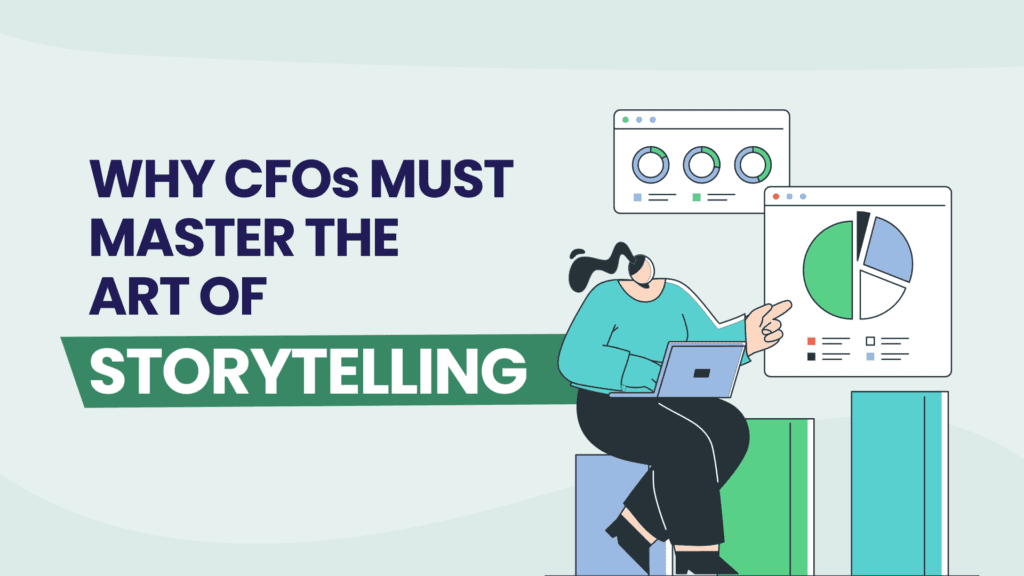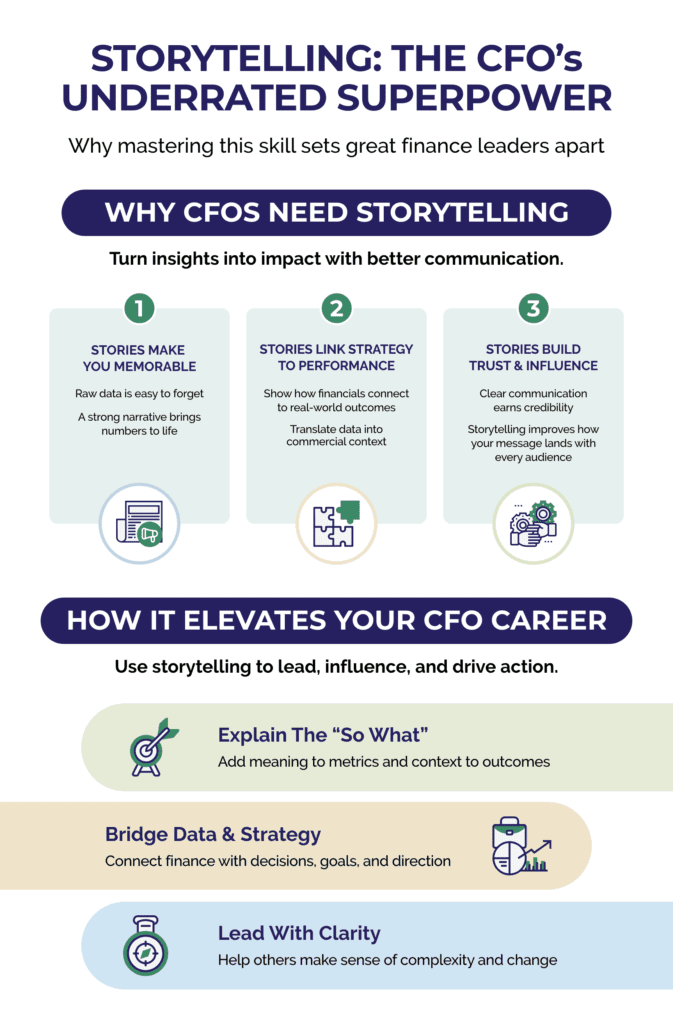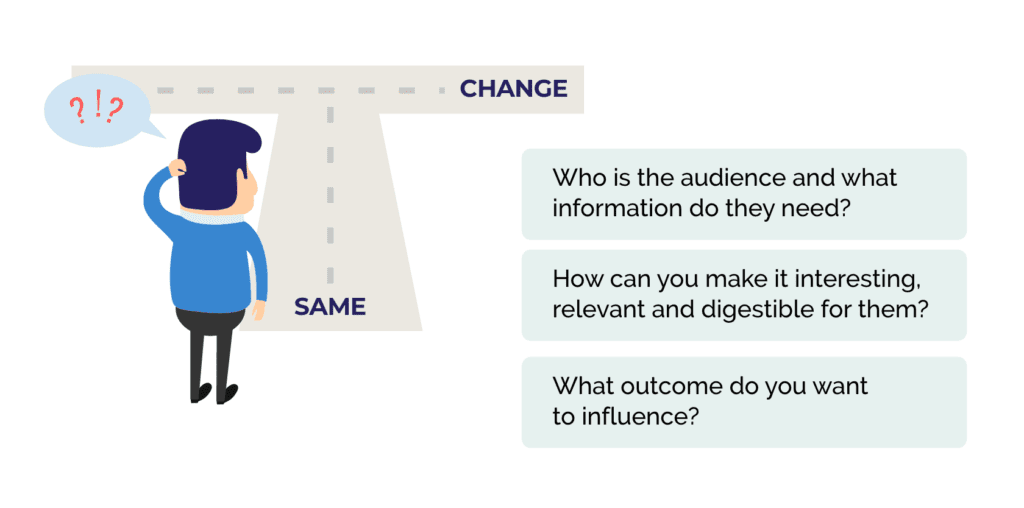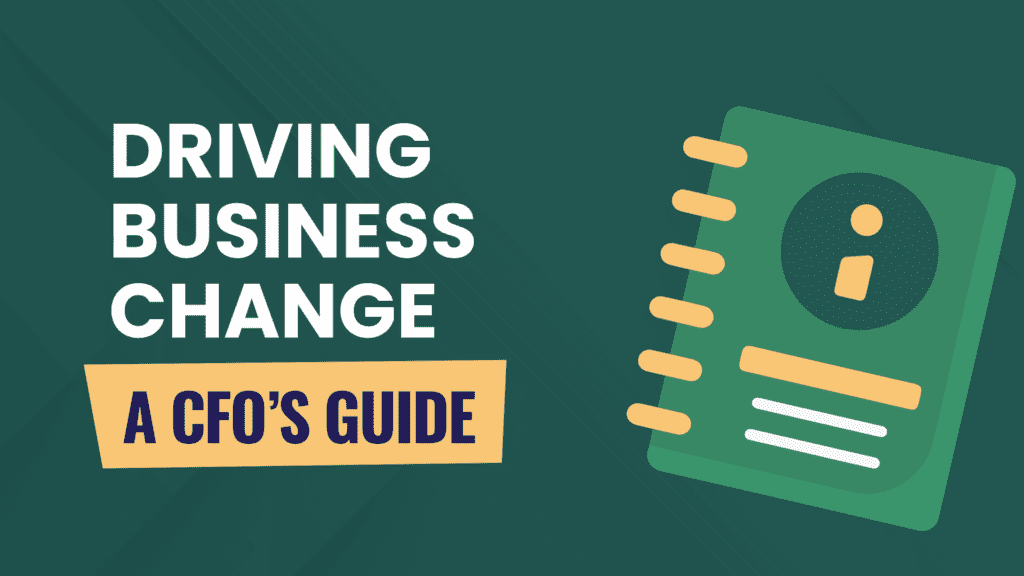Why CFOs Must Master the Art of Storytelling

According to a study published in the Harvard Business Review, 73% of executives say they make better decisions when data is presented as a story rather than as raw numbers.
Storytelling isn’t just a soft skill—it’s a strategic one. For CFOs, the ability to craft compelling narratives around financial data is crucial for influencing decisions and driving business strategy.
Here’s Why You Need This Skill:
- It Makes You Memorable
Data on its own is forgettable. A good story sticks. It brings financials to life and helps people understand the bigger picture. - It Connects Strategy to Performance
You’re not just reporting numbers. You’re linking financial data to commercial outcomes, market conditions, and internal operations. That’s real strategic impact. - It Builds Trust and Influence
Whether you’re speaking to execs, investors, or employees, how you communicate shapes how your insights are received. Clear, compelling stories build credibility.
How Storytelling Strengthens Your Career as a CFO:
✅ You explain the “so what” — What do the numbers mean in context? What’s driving them? Why should people care?
✅ You become the bridge — Between data and action, finance and strategy, insight and execution.
✅ You lead with clarity — Especially in uncertain times, storytelling helps people make sense of what’s happening and where to go next.

Without It?
You’re just reporting.
And factual reports — no matter how accurate — don’t move people or shape decisions.
What You Can Do Now:
- Identify your business’s key value drivers
- Link performance ratios to commercial activities
- Use storytelling to frame your findings in a compelling, accessible way
Remember: You’re not just a finance leader.
You’re the narrator of your company’s performance, progress, and potential.
And the best CFOs know — it’s not enough to show the numbers.
You need to tell the story behind them.
Everybody has their own style of storytelling. You can make your message very clear by using a combination of numbers, pictures and words – whatever combination and ratio suits you best. Here are three things for you to consider:
As CFO, your value isn’t just in reporting the numbers — it’s in explaining what they mean.
That’s where storytelling becomes a strategic skill.
Here are 3 quick questions to check your approach:
🔹 Can you personalise it?
Do you use real examples or experiences to make your message more relatable and human?
🔹 Can you bring the data to life?
Do you go beyond reporting to explain what’s driving the numbers — and why it matters?
🔹 Can you make it stick?
Do your insights connect in a way people remember and act on?
When you shape financials into a clear, compelling story, you help people understand the bigger picture — and make smarter decisions.
If you know the numbers but want to understand the market forces behind them — this is your next step.
The Future CFO Program helps you build the strategic perspective modern finance leaders need.
🔗 Join the free preview event to explore how this program can sharpen your market awareness, shape smarter decisions, and strengthen your impact at board level.






